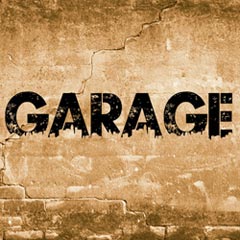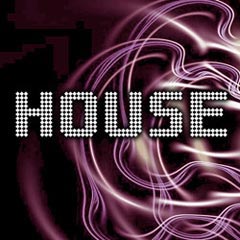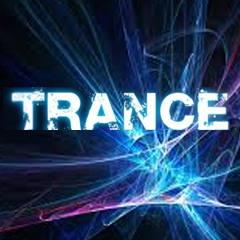House music
ON AIR - PROGRAMMING
Minimal electronic sounds, flat syncopation, thousands of bodies rubbing against each other in the clubs around the world, designer clothes, bottles of champagne and private rooms. The most commercial and listened to genre in the clubs. House music fills clubs and festivals with joyous and vibrant celebration. Its namesake derived from its origins in legendary Chicago clubs that shook their walls in the day. People from all walks of life reveled in joining in on a communal experience connected by sound, movement and energy. Casually referred to as "Club Music", DJs and producers pushed boundaries between funk, hip hop, disco and soul mixing layer after ever changing layer as the night went. Constantly evolving, house music shifted between nightclub atmospheres to radio play, swelling alternative subgenres ever further. Passionate crowds dancing with unanimous emotion amongst depth spilling 4 tunes mixed together marked this art form an unforgettable journey down the numerous winding paths of modern, electronic dance music today. From pumping ACID beats to African Pop melodies, breathtaking euphorizes reigns envelop the world encompassing all the truly special people who are held both emotionally and spiritually afloat within it's grasp. House music is a genre f electronic dance music played by Djs in Chicago in the 1980s. Its regular beat and the typical cymbals and bassline distinguish this disco music played in the clubs.
The Journey of House Music: From Chicago Clubs to Global Parties
Have you ever found yourself in a club or at a festival surrounded by throbbing beats, dancing bodies and flashing lights? If you have, then you have likely experienced the euphoric energy of house music. This genre has been an integral part of the party scene for decades, boasting a rich history and diverse sub-genres. In this article, we will take you on a journey through the evolution of house music, from its origins in Chicago clubs to its current global popularity.
Origins of House Music: The birthplace of house music is Chicago, where it emerged in the early 1980s. The genre was created by DJs who played in gay clubs and had a profound impact on music in the city. These DJs were influenced by disco, funk, and soul, but they wanted to create something new, something that would be more dynamic and soulful than disco. They began to experiment with electronic sounds, using drum machines, synthesizers, and samplers. The result was a new genre called house music, which was named after the clubs where it was played.
Evolution of House Music: House music quickly spread from Chicago to other cities in the United States, and then to Europe and the rest of the world. As its popularity grew, house music spawned many sub-genres, each with its own unique style. These sub-genres include deep house, techno, trance, and many others. Each sub-genre has its own distinct sound, influenced by different cultural factors, such as geography, local music scenes, and historical events.
Global Popularity: Today, house music is one of the most popular genres of music in the world. It has become a staple of the club and festival scenes, where people gather to dance, socialize, and have a good time. It has also become an integral part of popular culture, appearing in movies, television shows, and advertisements. House music has truly become a global phenomenon, appealing to people of all ages, backgrounds, and nationalities.
Innovation: One of the defining features of house music is its constant innovation. Producers and DJs are always experimenting with new sounds and styles, pushing the boundaries of the genre. This has led to a wide range of sub-genres within house music, each with its own unique style and sound. From the minimalistic beats of acid house to the melodic sounds of deep house, there is something for everyone within the world of house music.
Community: Finally, what sets house music apart from other genres is its sense of community. House music is a genre that is meant to be experienced live, in a club or at a festival. It is an immersive experience where people come together to dance, socialize, and forget their worries. This sense of community has created a passionate and loyal fan base that has helped to keep the genre alive for over 40 years.
In conclusion, house music is a genre that has had a profound impact on the music world. Its origins in Chicago clubs have spawned a global phenomenon that continues to evolve and capture the hearts of music lovers everywhere. With its diverse sub-genres, constant innovation, and strong sense of community, house music has become much more than just a genre of music – it is a way of life. So, next time you find yourself in a club or at a festival, take a moment to appreciate the euphoric energy of house music and the journey that brought us here today.
The Journey of House Music: From Chicago Clubs to Global Parties
Have you ever found yourself in a club or at a festival surrounded by throbbing beats, dancing bodies and flashing lights? If you have, then you have likely experienced the euphoric energy of house music. This genre has been an integral part of the party scene for decades, boasting a rich history and diverse sub-genres. In this article, we will take you on a journey through the evolution of house music, from its origins in Chicago clubs to its current global popularity.
Origins of House Music: The birthplace of house music is Chicago, where it emerged in the early 1980s. The genre was created by DJs who played in gay clubs and had a profound impact on music in the city. These DJs were influenced by disco, funk, and soul, but they wanted to create something new, something that would be more dynamic and soulful than disco. They began to experiment with electronic sounds, using drum machines, synthesizers, and samplers. The result was a new genre called house music, which was named after the clubs where it was played.
Evolution of House Music: House music quickly spread from Chicago to other cities in the United States, and then to Europe and the rest of the world. As its popularity grew, house music spawned many sub-genres, each with its own unique style. These sub-genres include deep house, techno, trance, and many others. Each sub-genre has its own distinct sound, influenced by different cultural factors, such as geography, local music scenes, and historical events.
Global Popularity: Today, house music is one of the most popular genres of music in the world. It has become a staple of the club and festival scenes, where people gather to dance, socialize, and have a good time. It has also become an integral part of popular culture, appearing in movies, television shows, and advertisements. House music has truly become a global phenomenon, appealing to people of all ages, backgrounds, and nationalities.
Innovation: One of the defining features of house music is its constant innovation. Producers and DJs are always experimenting with new sounds and styles, pushing the boundaries of the genre. This has led to a wide range of sub-genres within house music, each with its own unique style and sound. From the minimalistic beats of acid house to the melodic sounds of deep house, there is something for everyone within the world of house music.
Community: Finally, what sets house music apart from other genres is its sense of community. House music is a genre that is meant to be experienced live, in a club or at a festival. It is an immersive experience where people come together to dance, socialize, and forget their worries. This sense of community has created a passionate and loyal fan base that has helped to keep the genre alive for over 40 years.
In conclusion, house music is a genre that has had a profound impact on the music world. Its origins in Chicago clubs have spawned a global phenomenon that continues to evolve and capture the hearts of music lovers everywhere. With its diverse sub-genres, constant innovation, and strong sense of community, house music has become much more than just a genre of music – it is a way of life. So, next time you find yourself in a club or at a festival, take a moment to appreciate the euphoric energy of house music and the journey that brought us here today.
What are you thinking about?







